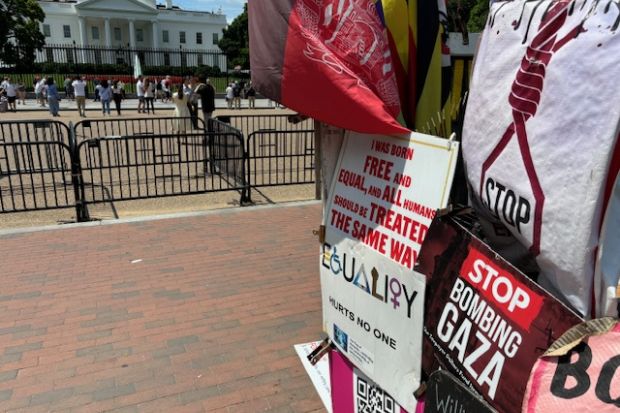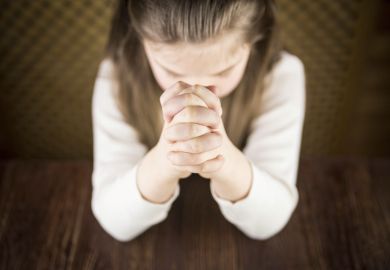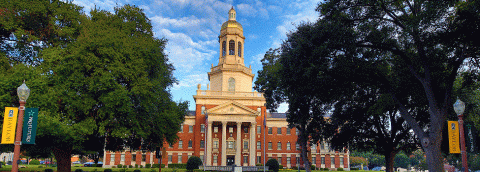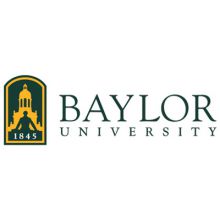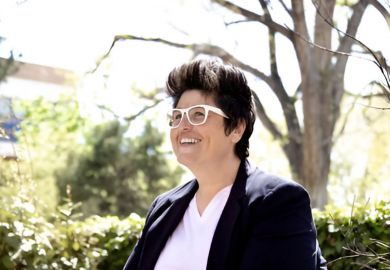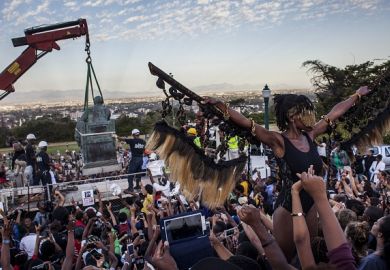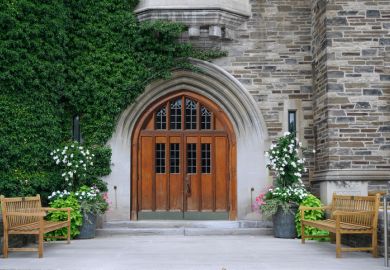Religiously affiliated US colleges and universities are making a united push for attention as both a haven and a solution at a moment of mounting political, economic and demographic stresses across higher education.
The sector is being boosted in the effort by US higher education’s main lobby group, the American Council on Education, which is arguing that religious campuses provide students with a unique sense of belonging.
“For the rest of us, we need to learn from that,” the council’s president, Ted Mitchell, said in convening the inaugural gathering in Washington of a new ACE Commission on Faith-based Colleges and Universities.
The presidents of several religiously focused universities eagerly embraced the attention, wishing openly that US students and other Americans – especially after the recent run of student anti-war protests – may now be viewing their models as a needed alternative in the post-secondary world.
“Let’s be confident and optimistic,” Shirley Hoogstra, president of the 180-institution Council of Christian Colleges and Universities, told the commission’s opening, “that we are in the right business at the right time.”
Yet both inside and outside the assembly, the caution signs were plentiful. US campus closures are running at historically high levels, with religious institutions a leading contributor. Behavioural rules based on parochial beliefs about the divine are seen by experts as causing mental health stresses among students as much as alleviating them. Political outlooks grounded in religious certainty could be exacerbating free-speech frictions more than resolving them.
Universities infused with religious piety, “by and large, are scary places to be for marginalised folks”, said Erin Green, a graduate of two such institutions who now leads the Religious Exemption Accountability Project, a nationwide effort to help LGBTQ students.
And while religious institutions can provide students with more personal attention, that often is accomplished through smaller campuses that now look more financially vulnerable as the US population generally – and the churchgoing population in particular – shrinks in size.
Such economics probably help explain the fact that 10 of the 15 non-profit four-year colleges that closed in the US last year were religiously affiliated. Many other religious campuses, by comparison, show strong growth in enrolment, Ms Hoogstra said in an interview.
Then there is the complicated set of questions surrounding politics and free speech, which took centre stage in recent months as students at some 50 US campuses staged sit-in protests against Israel’s military bombardment of Gaza civilians as retaliation for an ambush attack by Palestinian militants.
US lawmakers and wealthy donors on the political right accused students of antisemitic behaviour, which many in academia have dismissed as a smokescreen for such establishment actors to press their wider grievances with higher education’s traditional encouragement of scepticism toward incumbent societal powers and hierarchies.
The presidents gathered for the new ACE commission spoke repeatedly of their campuses as places that cultivate calm and reasoned debate of hot-button topics, without expelling or marginalising dissent.
Ari Berman, the president of Yeshiva University, bemoaned the way that differing perspectives on Israel’s behaviour in Gaza led to “the unravelling of our institutions of higher learning” outside those with religious missions. “They have not been able to respond with values,” Mr Berman boasted to the conference by video link from Israel, where he was attending his daughter’s wedding.
Yet the presidents repeatedly described for the conference the processes – most importantly, in faculty hiring and student enrolment – that they routinely use to painstakingly eliminate ideological dissent from their campuses, at the same time that their conservative allies have successfully pressured or forced Harvard University and other secular institutions to cut diversity considerations from their hiring and admissions processes.
“We’re very particular as we hire,” said Linda Livingstone, president of Baylor University. An institution can reconcile religious faith and scientific research only “if you have faculty that believe that that’s important”, she said.
“The hiring process is critically important,” said Jim Gash, president of Pepperdine University. “We fundamentally believe in academic freedom,” and do not restrict faculty from expressing their opinions, Mr Gash assured the conference. “We do the limiting, so to speak, on the hiring,” he quickly added.
The confidence of such an approach, said Brian Ashton, president of Brigham Young University’s online operation, BYU-Pathway Worldwide, is rooted in the idea that “God is the source of all truth”.
“There are some questions that are just difficult to answer through the scientific method,” Mr Ashton said in an interview at the conference, “and our students have a way to go and attempt to answer those questions through faith.”
For a keynote, the ACE and the religious institutions invited Freeman Hrabowski, the legendary former president of the University of Maryland Baltimore County, whose formative experiences with religious tension included listening to Martin Luther King Jr eulogise some of the girls killed in the infamous Birmingham church bombing of 1963.
Dr Hrabowski admitted that he was surprised, upon making a visit to BYU, by the sophistication and depth of thought he encountered among students at the iconic Mormon-affiliated institution. “I realised when I got there just how prejudiced and biased I was,” he said. “And realised I needed to open my mind and my heart.”
Yet Dr Hrabowski also suggested to the presidents that they be careful about their own preconceptions, including with regard to the student protests against Israel.
“Part of our challenge is to think about that part of faith, of religion, that talks about humility – that we as college presidents should be leading the way in being determined to do the right thing, on the one hand, but also who can show through our actions that we believe in being humble,” he said. “We don’t want people to think faith-based institutions think they have all the answers.”
Ms Green said she feels that deeply, given the many students she’s encountered who realised their LGBTQ identity only after enrolling at a religiously affiliated college. Unlike the “agenda of love” that Jesus was known to have pursued, much of organised religion, including its faith-based universities, act in ways that reflect the political agendas they feel they must obey to survive, Ms Green said.
She said she earned her two degrees – a bachelor of arts in biblical studies from Azusa Pacific University and a master’s of divinity from the San Francisco Theological Seminary – explicitly “because I wanted to become an expert on the language that was used to be weaponised against me as a queer person”.
Ms Hoogstra said it was difficult to summarise the entire religious sector, and admitted it had room for improvement. In particular, she said in her interview, the US public might not have a full understanding of what students across all kinds of campuses were thinking and doing with regard to the military attacks in Gaza.
“Any time you have a broad brush, you lose the individual stories and the individual motivations,” she said. “I actually saw some of the protests as students caring.”
Register to continue
Why register?
- Registration is free and only takes a moment
- Once registered, you can read 3 articles a month
- Sign up for our newsletter
Subscribe
Or subscribe for unlimited access to:
- Unlimited access to news, views, insights & reviews
- Digital editions
- Digital access to THE’s university and college rankings analysis
Already registered or a current subscriber?
